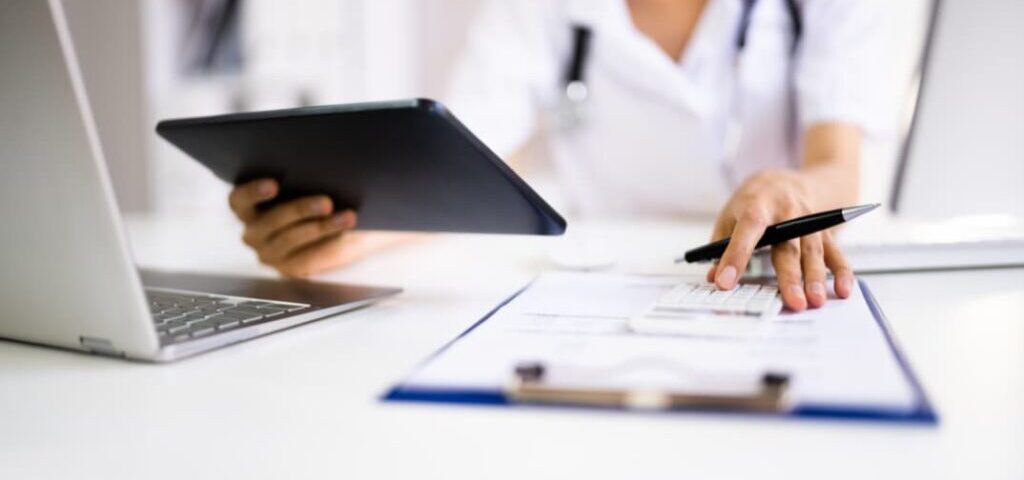
Five Pointers for Novice Home Buyers
April 19, 2024
Stay Out of Trouble: Benefits of Hiring a Car Accident Lawyer
April 19, 2024The significance of recording your injuries and medical care

It is crucial to keep a record of your injuries and medical care if you are seeking reimbursement for your losses from the person at fault after being hurt in a vehicle accident, slip and fall, or medical error. After an accident, getting medical attention may seem obvious, but it’s important to remember that keeping thorough records of your injuries and medical care is essential if you want to make the responsible party pay for your care.
Your personal injury lawyer will want solid proof of your physical injuries, the medical treatments you’ve had, and the anticipated cost of any future medical procedures in order to guarantee that you get full compensation for your losses after an accident. The secret to a successful personal injury case is proper documentation.
The Value of Keeping Records of Medical Care and Injuries in Personal Injury Cases
In order to be eligible for the compensation you are entitled to, you must provide proof of both your financial losses and physical injuries when filing a personal injury case. If you don’t, your claims will probably be denied or, at the very least, the amount of your payout will be lowered. The greater your level of medical proof, the more likely you are to get a fair compensation settlement.
Determining the Degree of Damage
No matter how evident an injury may be, there is no record of it if it is not treated right away after an accident. Medical records include indisputable evidence of your injuries, their severity, details about your present injuries, potential long-term health consequences, and information about your medical expenses.
Establishing Causation
The plaintiff in a personal injury case must demonstrate that the negligent party resulted in both the harm and the monetary losses. The most reliable source of information on the circumstances surrounding the injury is medical records. The defendant may readily cast doubt on the circumstances surrounding the injuries’ occurrence if there are no medical documents.
Monitoring Health Care Expenses
Accident-related injuries extend beyond the plaintiff’s immediate medical needs. While some injuries may be treated on the spot, the majority need to be followed up on. Keeping thorough records of all medical procedures and related expenses helps in making up for any financial losses. To guarantee full reimbursement for all costs incurred, it is essential to save all receipts, invoices, and paperwork obtained from medical visits.
Giving Testimony in Court
Suing for a personal harm needs proof. You may monitor and record your medical treatment and related expenses to provide the legal system evidence of your losses. Your injuries, no matter how obvious, won’t be accepted unless you have medical documentation. The more substantial this proof is, the more credible your claims of harm and financial difficulties will be.
Defending Against Legal Disputes
The legal team of the negligent party will make every effort to minimize or reject culpability, whether it comes from their attorneys or a group of claims adjusters from the insurance company. To demonstrate the magnitude of your injuries and the financial troubles they have created, it is essential to gather medical documentation. Without comprehensive and in-depth medical records, your personal injury claim may be swiftly contested.
Encouraging Settlement Discussions
It’s true that many personal injury cases are resolved during the discovery phase, when both sides gather to present information, but this doesn’t guarantee that the defense will make a prompt and reasonable settlement offer. Even though they may give compensation, the injured party won’t be paid for all of their losses if they don’t have the necessary medical records and other supporting paperwork.
Medical Evidence Types for Personal Injury Cases
When pursuing just compensation after an accident, it is crucial to gather all medical records, invoices, bills, and other evidence of injuries and financial losses. This documentation may contain the following and extends much beyond only medical bills:
- Medical records: These include, but are not limited to, documents from hospitals used for admission and release, diagnostic notes from physicians, surgery reports, X-rays and pictures from MRIs and CAT scans, and prognosis reports. Obtain all medical records from the injured parties’ physicians.
- Photographic evidence: Videos or photos taken of the injury at the scene and throughout the healing process might serve as important documentation of the physical damage the event caused.
- Witness testimony – People who saw the accident or who have personally seen how their injury has affected their lives are both eligible to testify.
- Medical experts may provide evidence on the extent of your injuries, what kind of treatment you can anticipate in the future, and how the accident has altered your life substantially.
- Medical bills – Extensive medical records from all medical providers may attest to the costs of surgical procedures, medical care, recovery, and other incidentals associated with the accident.
- Prescription records: Invoices and receipts for necessary prescription drugs and medical supplies should be acquired and kept on file in order to show the expenses related to medical treatment.
- Evidence of lost wages: Pay stubs, tax returns, and employer statements on business letterhead may all attest to a worker’s normal monthly income as well as wage loss.
- Financial records: Additional evidence of financial losses may be provided by bank statements and receipts for any out-of-pocket costs incurred as a result of the accident.
- Future medical care plans: These might serve as evidence of anticipated medical attention, therapy, and expert support as a result of the accident.
- Injury and pain journal: Keeping track of any discomfort, health problems, or emotional shifts on a daily or weekly basis will assist create a chronology of the injury’s continuing impact.
Important Considerations for Getting Medical Records and Documents for a Personal Injury
To make sure you get full reimbursement for all losses in a personal injury accident claim, gathering medical proof is essential. While your personal injury lawyer can help you through the process, it is crucial that you take the initiative and keep thorough documents.
Keep Extensive Documentation
Save copies of any correspondence pertaining to your injuries, as well as any bills, receipts, and other documentation that you may need for medical appointments, therapy, and other visits and costs. Copies may be stored in folders or in a bookbinder. By doing this, you can make sure that all of your evidence is in one convenient location.
Make a request for medical records
Talk to your medical professionals about getting all of the records pertaining to your injury. To access these data, you may sometimes need to submit a permission form and/or pay a charge.
Consult Your Personal Injury Lawyer
Your personal injury attorney will be aware of the invoices, receipts, and paperwork needed for your particular case. Through close collaboration, they may provide guidance on how to get the most compelling evidence.
Keeping Track of Your Treatment and Injuries in Case of a Personal Injury Lawsuit
It may first seem to be an easy undertaking to gather medical proof and other relevant documentation to show injuries and financial losses in a personal injury claim. This crucial step, nevertheless, isn’t as simple as it seems in order to get damages compensation. Absolute evidence is required by the court system, and getting it sometimes calls for assistance.
The astute staff at bsnews1 can assist you in obtaining the proof required to guarantee the greatest result. Make a free appointment right now. Recall that the statute of limitations begins to run the moment your injuries happen, so don’t wait.

